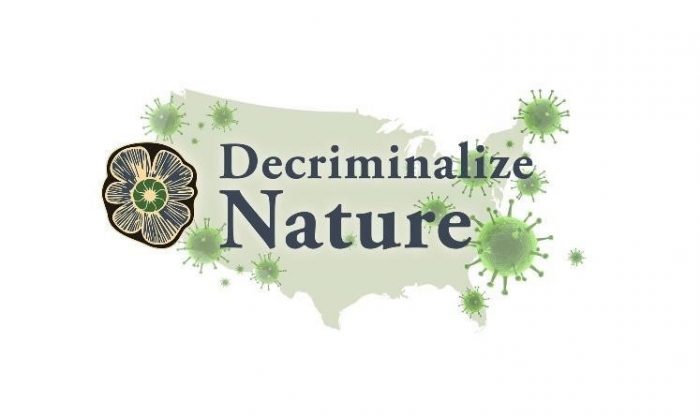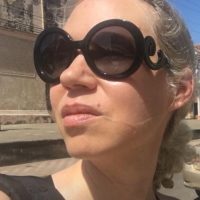I remember a world that was so recent. It was a world where I woke up every day and the internet was filled with news stories about the promising psychiatric and therapeutic potential of hallucinogens. It was everywhere. Facebook, Instagram, our own communities. It was on fire.
Move Over, Pot: Psychedelic Companies Are About to Go Public, Bloomberg news reported on February 11. Business gets ready to trip: How psychedelic drugs may revolutionize mental health care, Fortune magazine said on Feb 17.
Mainstream media was finally covering, acknowledging, spreading—what so many of us have known for so long. A new day had dawned for us supporters of psychedelic medicine and research. The #Thankyouplantmedicine movement quickly spread globally, with thousands of people around the world testifying to the benefits of psychedelics. The official Facebook page for the Thank You Plant Medicine community currently has over 20,000 likes and over 12,000 members and continues to grow.
The world was finally seeing the potential of psychedelic medicine. Old-school systems and thinkers were waking up and showing receptivity to new treatment modalities on the horizon. Within even the mainstream culture of mental health and chemical dependency treatment (historically systems slow to change), there was a growing movement to try something else. The plant medicine/psychedelic global movement, a burgeoning sea of social discourse and activism–was taking off and growing exponentially.
The Decriminalize Nature movement is led by concerned global citizens who are trying to decriminalize plant medicine (reducing entheogens to the lowest level of prosecution by local law enforcement). We aim to open the door for people to come together, supporting one other in feeling safe, in coming out of the “psychedelic closet.”
Seattle is very attuned to psychedelics with three related Meetup groups, totaling 3,300 people with considerable overlap. Currently the University of Washington Medical School is considering opening a Center for Psychedelic Medicine. Cascadia Psychedelic Community had a major conference scheduled at Town Hall Seattle for April 2020, the first ever such conference in Seattle, until it was cancelled because of the coronavirus.
There is a visible presence of plant medicine activists in our city. Here doctors, lawyers, people in recovery, local Native activists, hippies, techies—we were all joining together—from every background and class-level. We were feeling the camaraderie of a unifying national cause, and we were winning.
We saw voters putting it to the ballot in Denver and taking it to their city council in Oakland. Ballot measures were being promoted in the state of Oregon and Washington, D.C. The Chicago City Council voted 50-0 to consider further action. It wasn’t just a pipe dream anymore. The momentum, here, on the local level was palpable—like an electric current running through our collective veins with this possibility of plant medicine being accessible to the people.
And then the virus came.
Washington had the first reported case of the coronavirus in the US. My job involves working in the local hospitals, and I understood the risk on a personal level—day after day as the news hit with more and more coverage. None of us was safe. The news changed daily. What we thought we couldn’t get due to age or demographic or level of exposure, changed by the day. All of us, the whole damn city, came to a collective standstill.
Gone were the articles flooding the daily social media feed of psychedelics as the next wave of mental health and chemical dependency treatment. Gone were the updates on the Decriminalize movement on a national level. Coronavirus took the air out of every other news story—including those covering the psychedelic revolution. The news instead became a constant barrage of negative images and scarier updates which then surpassed the last scarier update.
Over the last month our city officials have been consumed with the 24-hour crisis response services to a city that is facing a terrible, crushing epidemic. Our streets are devoid of the normal bumper-to-bumper traffic. We are holed up in our homes (if we have them), under quarantine–with our Skype calls and Zoom meetings.
But where do they connect? Where do plant medicine accessibility goals and rights correspond with this greater crisis and paradigm shift facing our collective humanity and local communities? In this moment, there is great tension, great uncertainty. Some members of our community are facing real fear, real distress–even if for some it may be a time of renewed strength or a time for positive introspection.
I am reminded of the role of fear as a cathartic agent—even, or especially, in psychedelic ceremony. So many of those who have found healing with plant medicine have also experienced fear. Plant medicine and psychedelic experiences can be challenging voyages which can force people to be willingly uncomfortable, to risk facing damaged and sick aspects of themselves.
As we sit in this powerlessness or uncertainty, we similarly face our fears now. We face the concept of stark aloneness versus the power of collective symbiotic connection. Symbiotic connection that almost brings to mind psilocybin as it weaves its delicate threads under the earth. And all of us, together, have this choice: to reach beyond our self-imposed walls and the isolation of this moment, and connect with one another.
In the time of a pandemic, there is a light in the shamanic darkness of this national stillness. We are now seeing our natural human resiliency emerge. People are in their homes and we are finding new ways to connect and create change. In the Decriminalize Nature Seattle movement, we still see volunteers come forward and generously offer their time, even now, when they may be facing a loss of a job or their business closing its doors. We are witnessing the natural resurgence of ingenuity in promoting our cause. From our homes we are branching out into new types of grassroots advocacy and brainstorming ideas like live streaming “virtual talking circles” and organizing media outreach projects that can be developed from a distance.
We see now that this community of activists has a real opportunity here to rise to the challenge and address the need for healing in communities affected by the long-term impacts of this virus. Ironically, the psychedelic renaissance can provide antidotes to anxiety, fear, and trauma that for many people, is part of the pandemic.
In this time during the pandemic, it is more important than ever that we have as many tools as we can and we shall find new pathways forward in our mission–new avenues for education, discourse, and civic activism. The human spirit is surprisingly and joyously resilient. Creative and adaptable, we push forward.

 Share on bsky
Share on bsky







Read 1 comment and reply